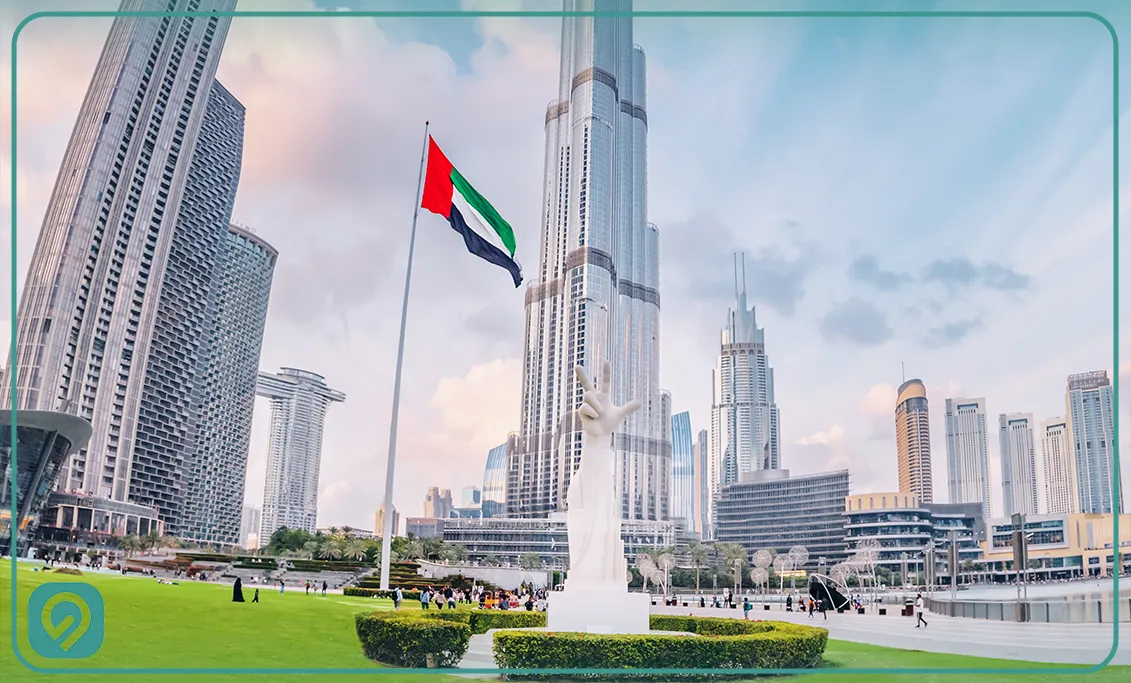Foreigners' Guide For Buying Real Estate in UAE
The UAE has real estate ownership laws and policies that allow foreign residents to purchase and own real estate.

Can foreigners own real estate in the UAE?
The UAE has real estate ownership laws and policies that allow foreign residents to purchase and own real estate. However, real estate ownership laws and regulations differ between the different emirates of the country and are regulated at the emirate level.
Foreigners are allowed to own freehold ownership in some specific real estate projects, while in many other emirates, you need to register with the local real estate regulatory center. It is important to comply with local laws and regulations regarding property ownership and check the necessary requirements before purchasing or owning a property in the UAE.
You should have careful guidance about the applicable laws and regulations in the emirate in which you intend to purchase the property, and it is always preferable to consult a lawyer or local real estate expert to ensure full compliance and transparency in the purchase and ownership processes.
Real estate ownership laws in the United Arab Emirates
The laws of owning real estate in the United Arab Emirates differ between the different emirates of the country and are subject to local regulation and regulations. However, there are some general principles and important things to consider when buying and owning real estate in most emirates:
- Rights and Duties: Foreign buyers and citizens should know their rights and duties when purchasing and owning real estate, and must comply with local laws and regulations.
- Real estate certificate: You need to obtain a real estate certificate confirming your ownership of the property, and this certificate is registered at the local real estate regulatory center.
- Real estate financing: Foreign buyers can obtain real estate financing from local banks and financial institutions based on local laws and rules.
- Rent and Leasing: The laws of the Emirates determine the rules related to rent and leasing, including terms, leases, and dispute settlement.
- Property Fees: Properties are subject to registration fees and certain other fees that must be paid to the local authorities.
- Authorization and Agency: You must obtain written authorization from the seller if you are using a real estate agent to complete the transaction.
- Taxes: Real estate is subject to real estate taxes in some emirates, and these taxes differ between each emirate.
Freehold residential and commercial properties for foreigners in Dubai
In the Emirate of Dubai, freehold ownership of residential and commercial properties is available to foreigners in specific areas. This policy aims to encourage foreign investment and strengthen the real estate sector in Dubai. Here is some basic information about freehold property in Dubai:
- Freehold Residential Properties: Foreigners can freehold residential properties in specific areas such as Dubai Marina, Jumeirah Beach Residence, and Jumeirah Lake Towers. The foreign buyer can fully own the property without the need for an Emirati partner.
- Freehold Commercial Properties: In addition to residential properties, foreigners can also freehold commercial properties in specific areas. This includes commercial properties such as offices and shops.
- Freehold areas: There are specific areas in Dubai that allow freehold ownership for foreigners, and these areas are known as freehold areas. Projects and areas that allow freehold ownership should be searched according to local laws.
- Laws and Regulations: Foreign buyers must comply with local laws and regulations regarding freehold ownership and land registration.
- Real estate financing: Foreign buyers can obtain real estate financing from local and regional banks and financial institutions based on local laws and conditions.
Conditions for owning real estate in Dubai for foreigners
Regarding the conditions for purchasing real estate for foreigners in Dubai, the Emirate of Dubai is considered one of the few destinations in the world that offers favorable and accessible conditions for foreigners seeking property rights in the UAE. The laws regarding purchasing real estate in Dubai depend on the local legislation issued by the government of the Emirate of Dubai, in addition to the general rules and regulations issued by the federal government of the United Arab Emirates. Among the main conditions that foreigners must adhere to when purchasing real estate in Dubai are:
- Freehold in specific areas: Foreigners can purchase properties in specific areas known as freehold areas recognized by the Dubai government. The buyer must commit to freehold only in these designated areas.
- Property Registration: The buyer must register the property with the Dubai Land Department, in order to confirm his right to ownership.
- Financial Commitment: All financial dues resulting from the process of purchasing the property must be paid, including Land Department fees, the property registration fee, the property evaluation fee, and the mortgage loan fee, in addition to the mortgage registration fees.
- Full ownership of commercial activities: Full ownership of foreign investors in Dubai allows more than 1,000 different commercial and industrial activities, with the exception of activities with strategic economic dimensions for the state, which fall within 7 different sectors.
These conditions contribute to making Dubai an attractive destination for real estate investment and business for foreigners looking to settle and succeed in this modern and advanced emirate.
In Dubai, freehold property refers to real estate that allows the owner to have full and permanent ownership of the property, with no limited tenure or lease. This means that the owner has the freedom to use and dispose of the property as they wish, without the need to renew the ownership contract periodically. Freehold properties in Dubai are highly desirable, as they offer stability and security to property owners and investors. This ownership structure has been a key factor in attracting foreign investment and expatriates to Dubai's real estate market.
Freehold ownership in the Emirate of Abu Dhabi
Freehold areas in Abu Dhabi for foreigners include several areas and specific real estate projects where foreigners can obtain the right to freehold ownership. These areas vary in the types of properties available and community services and facilities. Here are some freehold areas in Abu Dhabi:
- Al Reem Island: Al Reem Island is considered one of the most prominent freehold areas in Abu Dhabi. The island offers a variety of residential and commercial properties including luxury apartments and shops.
- Saadiyat: The Saadiyat area includes several residential and commercial projects that enable foreigners to own freehold ownership. The area also includes tourist attractions such as the Louvre Abu Dhabi.
- Yas Island: Yas Island includes several residential projects that offer free ownership and provide a distinguished living environment.
- Al Samha: The Al Samha area is a well-planned project and allows free ownership for foreigners.
- Maryam Island: Maryam Island is known as part of the charming beach project and includes a group of villas and residential units.
- Saadiyat Island: Saadiyat Island offers a variety of residential properties and entertainment facilities.
And other areas such as Al Raha Beach, Saih Al Sedira, Al Reef, Masdar City, Al Mariah, Lulu
Foreign buyers must adhere to the specific terms and conditions of each region and check the exact details of available properties before purchasing. Policies and laws vary from region to region and may be subject to changes over time.
Real estate purchase system in the Emirate of Abu Dhabi
In the Emirate of Abu Dhabi, government authorities provide several systems for owning real estate. Here is an explanation of the most important of these systems:
- Ownership system: This system allows the owner to fully own the property. The owner is known as the owner of absolute ownership of the property, and with this system, the owner can sell it, rent it, or leave it to his heirs.
- Usufruct system: According to this system, the property is owned temporarily and in the form of a specific usufruct right. The owner can benefit from the property during a certain period without having absolute ownership rights. This system is usually used in long-term rental cases.
- Musataha system: This system includes dividing the property into smaller, independent units owned by different parties. Co-owners of the property can own their own units and participate in managing the general area of the property.
- Long-term rental system: This system allows properties to be rented for long periods, up to multiple annual contracts. This system is commonly used for residential and commercial properties and allows the tenant to benefit from the property for a specified period without having to take ownership.
The regulations in place vary depending on the type of property and planned use, and are well defined and regulated according to local laws and regulations. Individuals wishing to buy or rent a property in Abu Dhabi must check which system is appropriate for their needs and adhere to its terms and conditions.
Freehold areas in Ajman
- Manama City: Manama City offers opportunities for foreigners to own freehold ownership in a variety of residential and commercial properties.
- Al Zahia: Al Zahia is considered one of the distinctive residential projects in Ajman, where foreigners can own freehold property.
- Al-Jalada Free Zone: Al-Jalada Free Zone offers opportunities for foreigners to own commercial and industrial properties.
- Al Helio: Al Helio is considered a freehold area in Ajman where foreigners can benefit from the available real estate offers.
Freehold areas in Sharjah
- Khalidiya Island: Khalidiya Island is considered one of the famous areas in Sharjah where foreigners can buy and fully own real estate.
- Al Mamzar: It is located in the heart of Sharjah and provides opportunities to buy real estate on a free basis.
- Port Khaled: Port Khaled is a residential and commercial project that provides real estate ownership opportunities for foreigners.
- New Al Mamzar: It is a modern addition to the city and provides opportunities to own real estate in a contemporary environment.
- Marine Island: It extends along the coast and provides freehold areas for real estate with panoramic views of the sea.
These areas are known to encourage real estate investment and offer opportunities for foreigners to buy and own real estate outright without the need for a local partner. However, you should always check the specific terms and conditions for each region and adhere to current real estate policies.
Why should you buy a property in the UAE?
There are many reasons why buying a property in the UAE is tempting and attractive to many. Here are some of the main reasons why you should buy a property in the UAE:
- Attractive investment environment: The UAE provides a stable and favorable investment environment for foreigners. The government encourages real estate investment and provides a range of incentives and facilities to investors.
- Freehold: The UAE allows foreigners to freehold property in certain areas, giving foreign investors full ownership of the property.
- Diversity of offerings: The UAE offers a diverse selection of properties including apartments, villas, offices, and commercial units, allowing buyers to find an option that suits their needs.
- Quality of life: The UAE enjoys a high quality of living, providing excellent infrastructure, high-level educational and health facilities, and social safety and stability.
- Strategic location: The UAE is located in the middle of the world and is considered a strategic center for business and trade. Europe, Asia, and Africa are easily accessible from the UAE.
- Tourism: The UAE is a popular tourist destination and attracts visitors from all over the world, which increases the opportunity to rent real estate and increase returns.
- Assumption Middle East: The real estate sector in the UAE is part of the thriving economy of the Middle East and offers lucrative investment opportunities.
- Offers and Facilities: The government offers many facilities and promotions to real estate investors and buyers.
Based on these reasons, buying a property in the UAE is an attractive option for living and investment. The UAE has a strong reputation as a distinguished investment and real estate destination.
Buy a property in the UAE with Deal Real Estate
If you are looking to buy apartments for sale in Dubai or in the United Arab Emirates, it is always better to let experts and professionals help with this task! If you have a desire to buy a property, you can consult with our experienced brokers who will answer all your inquiries and choose properties for sale in Dubai that meet your ambitions.
Deal Real Estate will provide you with dealing with all the bureaucratic procedures required to secure all conditions. Fill out the contact form and our experts will contact you at a time that suits you.
Have Question Or Suggestion ?
Please Share Your Thought, To Make It Real
.webp)
.webp)
.webp)
.webp)
.webp)



